|
Signalling in cancer - Chair: Bruno Amati
|
|
09.00 - 09.25
|
Rap G Protein Signaling in Hematologic Malignancy
Nagahiro Minato, Kyoto University Graduate School of Medicine, JP
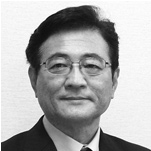 Nagahiro Minato, MD., PhD, was graduated from Kyoto University Faculty of Medicine in 1975 and worked on cancer immunology in the lab of Prof. Barry R. Bloom at Albert Einstein College of Medicine, NY, till 1980. After developing his career in medicine, in particular clinical autoimmunity, he was appointed to the professor of Dept. Immunology and Cell Biology, Graduate School of Medicine, Kyoto University in 1992. His current research activity includes small G protein signaling in lymphocyte development and function, mechanisms of cancer immunity and autoimmunity, and leukemia. He is also involved in the translational research on human cancer immunotherapy. Since 2010, he is acting as Dean of the Graduate School of Medicine. Nagahiro Minato, MD., PhD, was graduated from Kyoto University Faculty of Medicine in 1975 and worked on cancer immunology in the lab of Prof. Barry R. Bloom at Albert Einstein College of Medicine, NY, till 1980. After developing his career in medicine, in particular clinical autoimmunity, he was appointed to the professor of Dept. Immunology and Cell Biology, Graduate School of Medicine, Kyoto University in 1992. His current research activity includes small G protein signaling in lymphocyte development and function, mechanisms of cancer immunity and autoimmunity, and leukemia. He is also involved in the translational research on human cancer immunotherapy. Since 2010, he is acting as Dean of the Graduate School of Medicine.
|
|
09.25 - 09.50
|
Roles for RECK, a membrane-anchored regulator of extracellular matrix remodeling, in carcinogenesis
Makoto Noda, Kyoto University Graduate School of Medicine, JP
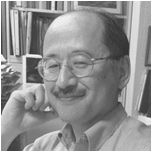 In my PhD study at Keio University, I isolated human retrovirus-related sequences whose presence was only hypothetical at that time (1982). I then went to National Cancer Institute, USA, as a postdoc and demonstrated functional diversity among oncogenes (1983). After I came back to Keio, we found the activity of RAS oncogenes to induce neuronal differentiation (1985). After I joined the Tsukuba Life Science Center, RIKEN, we established systems to screen the transformation suppressor gene (1989) and to isolate genes abundantly expressed in mouse neural precursor cells but low in mature brain ("Nedd" genes; 1992). We have extended these studies at Cancer Research Foundation, Tokyo and Kyoto University, and now we are focusing on RECK, the membrane-anchored MMP-regulator downregulated in many cancers. In my PhD study at Keio University, I isolated human retrovirus-related sequences whose presence was only hypothetical at that time (1982). I then went to National Cancer Institute, USA, as a postdoc and demonstrated functional diversity among oncogenes (1983). After I came back to Keio, we found the activity of RAS oncogenes to induce neuronal differentiation (1985). After I joined the Tsukuba Life Science Center, RIKEN, we established systems to screen the transformation suppressor gene (1989) and to isolate genes abundantly expressed in mouse neural precursor cells but low in mature brain ("Nedd" genes; 1992). We have extended these studies at Cancer Research Foundation, Tokyo and Kyoto University, and now we are focusing on RECK, the membrane-anchored MMP-regulator downregulated in many cancers.
|
|
09.50 - 10.10
|
Feed-back loops between extracellular proteolysis and cell adhesion in tumor growth
Nicolai Sidenius, IFOM, IT
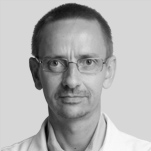 Nicolai Sidenius is group leader at the FIRC Institute of Molecular Oncology (IFOM), Milan, Italy. He received his MSc in Biochemistry in 1993 at the Institute of Microbiology, University of Copenhagen, Denmark, where he worked in the laboratory of Professor Olle Karlstrøm on the generation of transgenic mice to investigate the role of extracellular proteolysis in tumor growth. In 1994 he joined Professor Francesco Blasi's group at the University of Milan. In 1995 he moved to DIBIT, HSR, Milan, Italy where he conducted his PhD project working on various biochemical, biological and clinical aspects of the plasminogen activation system and was in 2000 awarded his PhD degree by Open University, London, UK. Following his PhD he continued his work as a staff scientist, first at HSR and later in 2003 out-stationed at IFOM. Since 2008 Nicolai Sidenius has been a tenure-track group leader at IFOM heading the Cell Matrix Signaling research lab. Nicolai Sidenius is group leader at the FIRC Institute of Molecular Oncology (IFOM), Milan, Italy. He received his MSc in Biochemistry in 1993 at the Institute of Microbiology, University of Copenhagen, Denmark, where he worked in the laboratory of Professor Olle Karlstrøm on the generation of transgenic mice to investigate the role of extracellular proteolysis in tumor growth. In 1994 he joined Professor Francesco Blasi's group at the University of Milan. In 1995 he moved to DIBIT, HSR, Milan, Italy where he conducted his PhD project working on various biochemical, biological and clinical aspects of the plasminogen activation system and was in 2000 awarded his PhD degree by Open University, London, UK. Following his PhD he continued his work as a staff scientist, first at HSR and later in 2003 out-stationed at IFOM. Since 2008 Nicolai Sidenius has been a tenure-track group leader at IFOM heading the Cell Matrix Signaling research lab.
|
|
10.10 - 10.30
|
Dual role of the Mad2 dimerization interface in the spindle assembly checkpoint
Andrea Ciliberto, IFOM, IT
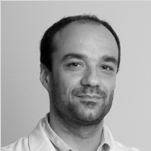 Andrea Ciliberto obtained his PhD in Genetics in 2000 from the University of Florence, working on a combination of experiments and mathematical models of the early development of the sea urchin embryo. He then specialized in modeling molecular regulatory networks with John Tyson and Bela Novak, at Virginia Tech and in the Institute of Advanced Sutides Collegium Budapest. Since 2005 he has been group leader of the 'Quantitative biology of cell division' lab in IFOM. His laboratory is particularly interested in understanding with quantitative tools the mechanisms of chromosome segregation. Andrea Ciliberto obtained his PhD in Genetics in 2000 from the University of Florence, working on a combination of experiments and mathematical models of the early development of the sea urchin embryo. He then specialized in modeling molecular regulatory networks with John Tyson and Bela Novak, at Virginia Tech and in the Institute of Advanced Sutides Collegium Budapest. Since 2005 he has been group leader of the 'Quantitative biology of cell division' lab in IFOM. His laboratory is particularly interested in understanding with quantitative tools the mechanisms of chromosome segregation.
|
|
10.30 - 11.00
|
Coffee break
|
^ top |
|
Genome stability syndromes - Chair: Francesco Blasi
|
|
11.00 - 11.25
|
ATR - mediated control of genome stability
Marco Foiani, IFOM - University of Milan, IT
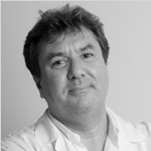 Marco Foiani is the Scientific Director and Head of the Genome Integrity Laboratory of IFOM– and co-founder of the IFOM-IEO Campus.
He was the founder and vice-president of the European Nanomedicine Foundation (CEN). He is also member of the Scientific Advisory Board of AIRC, the Italian Cancer Research Association. Since 2002 he has been full professor in Molecular Biology at the University of Milan and professor at the European School of Molecular Medicine (SEMM). He is also a member of the editorial board of Cell and editor and reviewer for scientific journals with top impact factors.
He was honored with internationally recognized memberships and awards, such as: the EMBO membership; the Academia Europaea membership; the New York Academy of Sciences membership; the Italian Society of Genetics (AGI) membership; the Italian Society of Biophisics and Molecular Biology (SIBBM) membership and award; the Biotec award; the Chiara D'Onofrio prize.
Marco Foiani has a PhD in Molecular Biology from the University of Milan. His research interest focuses on the regulatory mechanisms that control genome integrity. He has more than 80 papers published in international scientific journals. Marco Foiani is the Scientific Director and Head of the Genome Integrity Laboratory of IFOM– and co-founder of the IFOM-IEO Campus.
He was the founder and vice-president of the European Nanomedicine Foundation (CEN). He is also member of the Scientific Advisory Board of AIRC, the Italian Cancer Research Association. Since 2002 he has been full professor in Molecular Biology at the University of Milan and professor at the European School of Molecular Medicine (SEMM). He is also a member of the editorial board of Cell and editor and reviewer for scientific journals with top impact factors.
He was honored with internationally recognized memberships and awards, such as: the EMBO membership; the Academia Europaea membership; the New York Academy of Sciences membership; the Italian Society of Genetics (AGI) membership; the Italian Society of Biophisics and Molecular Biology (SIBBM) membership and award; the Biotec award; the Chiara D'Onofrio prize.
Marco Foiani has a PhD in Molecular Biology from the University of Milan. His research interest focuses on the regulatory mechanisms that control genome integrity. He has more than 80 papers published in international scientific journals.
|
|
11.25 - 11.50
|
Analysis of homologous recombination using the chicken B cell line, DT40
Shunichi Takeda, Kyoto University Graduate School of Medicine, JP
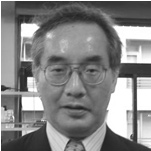 Shunichi Takeda graduated from the faculty of medicine, Osaka University in 1980, worked as an intern in a hospital for a year, and then joined Professor T. Honjo's laboratory as a Ph.D. student. He was a scientific member between 1988 and 1995 in the Basel Institute for Immunology, Switzerland, where all scientists enjoyed themselves working independently. Shunichi Takeda collaborated with Dr. J–M. Buerstedde, and published a manuscript on the chicken DT40 B lymphocyte line in 1991. Shunichi Takeda has had his own group in Kyoto since 1995, and has explored molecules responsible for the extraordinary efficient gene-targeting in DT40 cells. He is in charge of student exchange at Kyoto University, and has sent 17 medical students to IFOM-IEO, whose outstanding medical research was much appreciated. Shunichi Takeda graduated from the faculty of medicine, Osaka University in 1980, worked as an intern in a hospital for a year, and then joined Professor T. Honjo's laboratory as a Ph.D. student. He was a scientific member between 1988 and 1995 in the Basel Institute for Immunology, Switzerland, where all scientists enjoyed themselves working independently. Shunichi Takeda collaborated with Dr. J–M. Buerstedde, and published a manuscript on the chicken DT40 B lymphocyte line in 1991. Shunichi Takeda has had his own group in Kyoto since 1995, and has explored molecules responsible for the extraordinary efficient gene-targeting in DT40 cells. He is in charge of student exchange at Kyoto University, and has sent 17 medical students to IFOM-IEO, whose outstanding medical research was much appreciated.
|
|
11.50 - 12.15
|
Novel molecular insights on vertebrate genome stability maintenance and their implications for cancer, aging and cellular reprogramming
Vincenzo Costanzo, Cancer Research UK
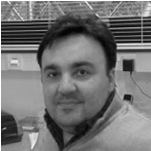 Vincenzo Costanzo graduated in Medicine and obtained his PhD in Molecular Biology at the University of Naples Federico II in 2002. He performed his postdoctoral studies at Columbia University with Jean Gautier, where he developed in vitro systems to study the biochemistry of DNA damage checkpoints. In 2004 he was recruited as group leader at the London Research Institute, Clare Hall Laboratories where he directed the Genome Stability Unit. In 2007 he was nominated Lister fellow and EMBO young investigator and was awarded the European Research Council start up grant. In 2010 he was promoted to tenured scientist. In 2013 he will relocate to IFOM to lead the Vertebrate Genome Stability laboratory. His studies focus on DNA metabolism and DNA damage response in vertebrate organisms. Vincenzo Costanzo graduated in Medicine and obtained his PhD in Molecular Biology at the University of Naples Federico II in 2002. He performed his postdoctoral studies at Columbia University with Jean Gautier, where he developed in vitro systems to study the biochemistry of DNA damage checkpoints. In 2004 he was recruited as group leader at the London Research Institute, Clare Hall Laboratories where he directed the Genome Stability Unit. In 2007 he was nominated Lister fellow and EMBO young investigator and was awarded the European Research Council start up grant. In 2010 he was promoted to tenured scientist. In 2013 he will relocate to IFOM to lead the Vertebrate Genome Stability laboratory. His studies focus on DNA metabolism and DNA damage response in vertebrate organisms.
|
|
12.15 - 12.45
|
Conclusions
|
^ top |

 Nagahiro Minato, MD., PhD, was graduated from Kyoto University Faculty of Medicine in 1975 and worked on cancer immunology in the lab of Prof. Barry R. Bloom at Albert Einstein College of Medicine, NY, till 1980. After developing his career in medicine, in particular clinical autoimmunity, he was appointed to the professor of Dept. Immunology and Cell Biology, Graduate School of Medicine, Kyoto University in 1992. His current research activity includes small G protein signaling in lymphocyte development and function, mechanisms of cancer immunity and autoimmunity, and leukemia. He is also involved in the translational research on human cancer immunotherapy. Since 2010, he is acting as Dean of the Graduate School of Medicine.
Nagahiro Minato, MD., PhD, was graduated from Kyoto University Faculty of Medicine in 1975 and worked on cancer immunology in the lab of Prof. Barry R. Bloom at Albert Einstein College of Medicine, NY, till 1980. After developing his career in medicine, in particular clinical autoimmunity, he was appointed to the professor of Dept. Immunology and Cell Biology, Graduate School of Medicine, Kyoto University in 1992. His current research activity includes small G protein signaling in lymphocyte development and function, mechanisms of cancer immunity and autoimmunity, and leukemia. He is also involved in the translational research on human cancer immunotherapy. Since 2010, he is acting as Dean of the Graduate School of Medicine. In my PhD study at Keio University, I isolated human retrovirus-related sequences whose presence was only hypothetical at that time (1982). I then went to National Cancer Institute, USA, as a postdoc and demonstrated functional diversity among oncogenes (1983). After I came back to Keio, we found the activity of RAS oncogenes to induce neuronal differentiation (1985). After I joined the Tsukuba Life Science Center, RIKEN, we established systems to screen the transformation suppressor gene (1989) and to isolate genes abundantly expressed in mouse neural precursor cells but low in mature brain ("Nedd" genes; 1992). We have extended these studies at Cancer Research Foundation, Tokyo and Kyoto University, and now we are focusing on RECK, the membrane-anchored MMP-regulator downregulated in many cancers.
In my PhD study at Keio University, I isolated human retrovirus-related sequences whose presence was only hypothetical at that time (1982). I then went to National Cancer Institute, USA, as a postdoc and demonstrated functional diversity among oncogenes (1983). After I came back to Keio, we found the activity of RAS oncogenes to induce neuronal differentiation (1985). After I joined the Tsukuba Life Science Center, RIKEN, we established systems to screen the transformation suppressor gene (1989) and to isolate genes abundantly expressed in mouse neural precursor cells but low in mature brain ("Nedd" genes; 1992). We have extended these studies at Cancer Research Foundation, Tokyo and Kyoto University, and now we are focusing on RECK, the membrane-anchored MMP-regulator downregulated in many cancers.  Nicolai Sidenius is group leader at the FIRC Institute of Molecular Oncology (IFOM), Milan, Italy. He received his MSc in Biochemistry in 1993 at the Institute of Microbiology, University of Copenhagen, Denmark, where he worked in the laboratory of Professor Olle Karlstrøm on the generation of transgenic mice to investigate the role of extracellular proteolysis in tumor growth. In 1994 he joined Professor Francesco Blasi's group at the University of Milan. In 1995 he moved to DIBIT, HSR, Milan, Italy where he conducted his PhD project working on various biochemical, biological and clinical aspects of the plasminogen activation system and was in 2000 awarded his PhD degree by Open University, London, UK. Following his PhD he continued his work as a staff scientist, first at HSR and later in 2003 out-stationed at IFOM. Since 2008 Nicolai Sidenius has been a tenure-track group leader at IFOM heading the Cell Matrix Signaling research lab.
Nicolai Sidenius is group leader at the FIRC Institute of Molecular Oncology (IFOM), Milan, Italy. He received his MSc in Biochemistry in 1993 at the Institute of Microbiology, University of Copenhagen, Denmark, where he worked in the laboratory of Professor Olle Karlstrøm on the generation of transgenic mice to investigate the role of extracellular proteolysis in tumor growth. In 1994 he joined Professor Francesco Blasi's group at the University of Milan. In 1995 he moved to DIBIT, HSR, Milan, Italy where he conducted his PhD project working on various biochemical, biological and clinical aspects of the plasminogen activation system and was in 2000 awarded his PhD degree by Open University, London, UK. Following his PhD he continued his work as a staff scientist, first at HSR and later in 2003 out-stationed at IFOM. Since 2008 Nicolai Sidenius has been a tenure-track group leader at IFOM heading the Cell Matrix Signaling research lab.
 Andrea Ciliberto obtained his PhD in Genetics in 2000 from the University of Florence, working on a combination of experiments and mathematical models of the early development of the sea urchin embryo. He then specialized in modeling molecular regulatory networks with John Tyson and Bela Novak, at Virginia Tech and in the Institute of Advanced Sutides Collegium Budapest. Since 2005 he has been group leader of the 'Quantitative biology of cell division' lab in IFOM. His laboratory is particularly interested in understanding with quantitative tools the mechanisms of chromosome segregation.
Andrea Ciliberto obtained his PhD in Genetics in 2000 from the University of Florence, working on a combination of experiments and mathematical models of the early development of the sea urchin embryo. He then specialized in modeling molecular regulatory networks with John Tyson and Bela Novak, at Virginia Tech and in the Institute of Advanced Sutides Collegium Budapest. Since 2005 he has been group leader of the 'Quantitative biology of cell division' lab in IFOM. His laboratory is particularly interested in understanding with quantitative tools the mechanisms of chromosome segregation.  Marco Foiani is the Scientific Director and Head of the Genome Integrity Laboratory of IFOM– and co-founder of the IFOM-IEO Campus.
He was the founder and vice-president of the European Nanomedicine Foundation (CEN). He is also member of the Scientific Advisory Board of AIRC, the Italian Cancer Research Association. Since 2002 he has been full professor in Molecular Biology at the University of Milan and professor at the European School of Molecular Medicine (SEMM). He is also a member of the editorial board of Cell and editor and reviewer for scientific journals with top impact factors.
He was honored with internationally recognized memberships and awards, such as: the EMBO membership; the Academia Europaea membership; the New York Academy of Sciences membership; the Italian Society of Genetics (AGI) membership; the Italian Society of Biophisics and Molecular Biology (SIBBM) membership and award; the Biotec award; the Chiara D'Onofrio prize.
Marco Foiani has a PhD in Molecular Biology from the University of Milan. His research interest focuses on the regulatory mechanisms that control genome integrity. He has more than 80 papers published in international scientific journals.
Marco Foiani is the Scientific Director and Head of the Genome Integrity Laboratory of IFOM– and co-founder of the IFOM-IEO Campus.
He was the founder and vice-president of the European Nanomedicine Foundation (CEN). He is also member of the Scientific Advisory Board of AIRC, the Italian Cancer Research Association. Since 2002 he has been full professor in Molecular Biology at the University of Milan and professor at the European School of Molecular Medicine (SEMM). He is also a member of the editorial board of Cell and editor and reviewer for scientific journals with top impact factors.
He was honored with internationally recognized memberships and awards, such as: the EMBO membership; the Academia Europaea membership; the New York Academy of Sciences membership; the Italian Society of Genetics (AGI) membership; the Italian Society of Biophisics and Molecular Biology (SIBBM) membership and award; the Biotec award; the Chiara D'Onofrio prize.
Marco Foiani has a PhD in Molecular Biology from the University of Milan. His research interest focuses on the regulatory mechanisms that control genome integrity. He has more than 80 papers published in international scientific journals.
 Shunichi Takeda graduated from the faculty of medicine, Osaka University in 1980, worked as an intern in a hospital for a year, and then joined Professor T. Honjo's laboratory as a Ph.D. student. He was a scientific member between 1988 and 1995 in the Basel Institute for Immunology, Switzerland, where all scientists enjoyed themselves working independently. Shunichi Takeda collaborated with Dr. J–M. Buerstedde, and published a manuscript on the chicken DT40 B lymphocyte line in 1991. Shunichi Takeda has had his own group in Kyoto since 1995, and has explored molecules responsible for the extraordinary efficient gene-targeting in DT40 cells. He is in charge of student exchange at Kyoto University, and has sent 17 medical students to IFOM-IEO, whose outstanding medical research was much appreciated.
Shunichi Takeda graduated from the faculty of medicine, Osaka University in 1980, worked as an intern in a hospital for a year, and then joined Professor T. Honjo's laboratory as a Ph.D. student. He was a scientific member between 1988 and 1995 in the Basel Institute for Immunology, Switzerland, where all scientists enjoyed themselves working independently. Shunichi Takeda collaborated with Dr. J–M. Buerstedde, and published a manuscript on the chicken DT40 B lymphocyte line in 1991. Shunichi Takeda has had his own group in Kyoto since 1995, and has explored molecules responsible for the extraordinary efficient gene-targeting in DT40 cells. He is in charge of student exchange at Kyoto University, and has sent 17 medical students to IFOM-IEO, whose outstanding medical research was much appreciated.  Vincenzo Costanzo graduated in Medicine and obtained his PhD in Molecular Biology at the University of Naples Federico II in 2002. He performed his postdoctoral studies at Columbia University with Jean Gautier, where he developed in vitro systems to study the biochemistry of DNA damage checkpoints. In 2004 he was recruited as group leader at the London Research Institute, Clare Hall Laboratories where he directed the Genome Stability Unit. In 2007 he was nominated Lister fellow and EMBO young investigator and was awarded the European Research Council start up grant. In 2010 he was promoted to tenured scientist. In 2013 he will relocate to IFOM to lead the Vertebrate Genome Stability laboratory. His studies focus on DNA metabolism and DNA damage response in vertebrate organisms.
Vincenzo Costanzo graduated in Medicine and obtained his PhD in Molecular Biology at the University of Naples Federico II in 2002. He performed his postdoctoral studies at Columbia University with Jean Gautier, where he developed in vitro systems to study the biochemistry of DNA damage checkpoints. In 2004 he was recruited as group leader at the London Research Institute, Clare Hall Laboratories where he directed the Genome Stability Unit. In 2007 he was nominated Lister fellow and EMBO young investigator and was awarded the European Research Council start up grant. In 2010 he was promoted to tenured scientist. In 2013 he will relocate to IFOM to lead the Vertebrate Genome Stability laboratory. His studies focus on DNA metabolism and DNA damage response in vertebrate organisms.

 Global COE Program
Global COE Program